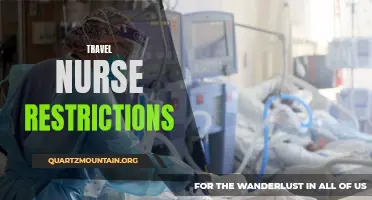
Going through a myomectomy can be a daunting experience, but it doesn't have to be if you are well-prepared. One way to ensure a smooth myomectomy recovery is to have the essential items packed and ready to go. These items can make a world of difference in your comfort and well-being during the recovery process. From comfortable clothing to pain management tools, this list covers everything you need to make your myomectomy recovery as smooth as possible.
What You'll Learn
- What clothing items should I pack for myomectomy surgery?
- Are there any specific toiletries or personal care items that I should bring?
- Do I need to pack any medical equipment or supplies for after the surgery?
- Are there any specific documents or paperwork that I should bring with me to the hospital?
- Is there anything else I should consider packing for myomectomy surgery that may not be obvious?

What clothing items should I pack for myomectomy surgery?

Having the right clothing items packed for your myomectomy surgery can make a significant difference in your overall comfort and recovery. Here are some essential clothing items that you should consider packing for your surgery:
- Loose-fitting and Comfortable Pants: When selecting pants to wear after your myomectomy surgery, opt for loose-fitting options that have an elastic waistband. This will provide you with the flexibility and comfort you need during your recovery. Avoid pants with buttons or zippers, as they might put unnecessary pressure on your incision area.
- Soft and Breathable Underwear: It is important to choose underwear made from soft and breathable materials, such as cotton, to minimize irritation and promote healing. Look for underwear that has a high-rise design to avoid putting pressure on your abdominal area.
- Comfortable Bras: Invest in comfortable and supportive bras that do not have underwires. Anesthesia and surgery can cause temporary breast swelling, so it is crucial to choose a bra that provides a proper fit and doesn't add unnecessary pressure.
- Loose-fitting and Breathable Tops: Opt for loose-fitting tops made from breathable fabrics, such as cotton or linen, to keep you cool and comfortable during your recovery. Consider tops with front buttons or zippers for easy dressing and minimal strain on your incision area.
- Slip-on Shoes: Choose shoes that are easy to slip on and off, as you might experience some discomfort bending down to tie shoelaces after your myomectomy surgery. Flat and supportive shoes with cushioning are highly recommended to provide stability and reduce the risk of falls.
- Warm Layers: Hospitals can be chilly, so it is a good idea to pack some warm layers, such as a cozy cardigan or a lightweight hoodie. Opt for garments that are easy to put on and take off, considering the limited range of motion you might have immediately after surgery.
- Comfy Pajamas: Bring a set of loose and comfortable pajamas to wear during your hospital stay. Look for pajamas that are easy to put on and take off, preferably with a button-up or front zipper design. Soft and breathable fabrics will help promote better sleep and aid in your recovery.
Remember to pack multiple sets of clean clothing, as you may require frequent changes due to potential post-surgical drainage or staining. Additionally, consider packing essential toiletries, such as a toothbrush, toothpaste, and gentle skincare products to maintain your hygiene and promote healing.
Keep in mind that everyone's experience and recovery from myomectomy surgery can differ. It is always a good idea to consult with your healthcare provider before your surgery to get personalized recommendations for clothing items based on your specific needs.
In conclusion, packing loose-fitting and comfortable clothing items for your myomectomy surgery is crucial for your comfort and recovery. By selecting breathable fabrics, avoiding tight-fitting clothes, and opting for easy-to-wear designs, you can make your post-surgery experience as comfortable as possible.
Essential Items to Pack for a Comic Convention
You may want to see also

Are there any specific toiletries or personal care items that I should bring?

When packing for a trip, whether it's a short weekend getaway or a long vacation, it's important to consider the toiletries and personal care items you'll need. While every person's needs may vary, there are some essential items that are worth considering.
- Skincare products: It's important to remember to bring your daily skincare regimen, including facial cleanser, moisturizer, and sunscreen. These products help to keep your skin healthy and protected from the sun's harmful rays. Additionally, if you have any specific skin concerns such as acne or dryness, be sure to pack any relevant products.
- Haircare products: Don't forget to bring your shampoo, conditioner, and any other hair products you use on a regular basis. If you plan on using styling tools such as a blow dryer or straightener, be sure to pack those as well.
- Oral care products: Toothpaste, toothbrush, dental floss, and mouthwash are all essential items to bring in order to maintain good oral hygiene while traveling.
- Body care products: Consider bringing a body wash or soap, as well as a loofah or washcloth. Also, pack any lotions, oils, or creams you use to keep your skin moisturized.
- Personal grooming items: This can include items such as a razor, shaving cream, and deodorant. If you wear makeup, be sure to pack your favorite products as well.
- Medications: If you take any medications on a regular basis, be sure to pack them in a secure and easily accessible place. It's also a good idea to bring any necessary over-the-counter medications such as pain relievers or allergy medicine.
- Feminine hygiene products: If you menstruate, be sure to pack an adequate supply of tampons, pads, or menstrual cups.
When packing your toiletries and personal care items, it's important to consider the duration of your trip. If you're only going away for a short period of time, you may be able to pack smaller travel-sized products. However, if you're going on a longer trip, you'll need to bring larger sizes or consider purchasing products at your destination.
It's also worth considering the climate and activities you'll be participating in during your trip. For example, if you'll be spending a lot of time in the sun, you may need to bring additional sunscreen or after-sun care products. If you'll be swimming, be sure to pack a swimsuit, towel, and any necessary pool or beach accessories.
In summary, when packing for a trip, it's important to consider the toiletries and personal care items you'll need. Be sure to bring your skincare, haircare, oral care, body care, and personal grooming products. Don't forget any necessary medications or feminine hygiene products. Consider the duration of your trip, the climate, and the activities you'll be participating in when deciding what to pack. By being prepared and organized, you can ensure that you have all the essential toiletries and personal care items you need for a comfortable and enjoyable trip.
Essential Items to Pack for a Smooth Bus Commute
You may want to see also

Do I need to pack any medical equipment or supplies for after the surgery?

When preparing for surgery, it's important to consider what medical equipment or supplies you may need during your recovery period. While every surgery and individual's needs are different, there are some common medical equipment and supplies that may be beneficial to have on hand post-surgery.
- Dressings and bandages: Depending on the type of surgery, you may need dressings or bandages to cover and protect incisions or wounds. It's important to have an assortment of different sizes and types of dressings, such as gauze pads, adhesive bandages, and sterile wraps.
- Sterile gloves: In some cases, you may need to change dressings or clean wounds yourself. Having a pair of sterile gloves can help prevent infection and ensure proper hygiene while tending to your surgical site.
- Antiseptic solutions: To keep your surgical site clean and reduce the risk of infection, it may be helpful to have antiseptic solutions, such as hydrogen peroxide or rubbing alcohol. These can be used to clean wounds or the area around surgical incisions.
- Pain medication: Most surgeries involve some level of pain or discomfort during the recovery process. It's important to discuss pain management options with your healthcare provider before surgery and ensure you have appropriate pain medication on hand. This may include over-the-counter options or prescribed medications.
- Assistive devices: Depending on the surgery and your individual needs, you may require assistive devices such as crutches, a walker, or a cane. These can help with mobility during your recovery period and may be necessary if weight-bearing or movement restrictions are placed on you.
- Ice packs or heating pads: Ice packs or heating pads may be helpful in managing pain, reducing swelling, or promoting healing depending on the type of surgery. Consult with your healthcare provider about which option is appropriate for you and consider having one on hand.
- Physical therapy equipment: If physical therapy is a part of your post-surgical recovery plan, you may need specific equipment such as resistance bands, exercise balls, or balance boards. These items can help aid in your rehabilitation process and should be obtained based on the guidance of your physical therapist.
It's important to consult with your healthcare provider before your surgery to discuss specific equipment or supplies that may be necessary for your recovery. They can provide you with a detailed list or recommendations based on your individual needs. Additionally, it's a good idea to have a well-stocked first aid kit in your home that includes basic medical supplies such as band-aids, adhesive tape, and antiseptic cleaners, as these can be useful for minor injuries or wound care that may arise during your recovery period.
Essential Clothing Items to Pack for Your Trip to the Netherlands
You may want to see also

Are there any specific documents or paperwork that I should bring with me to the hospital?

When you are preparing to go to the hospital, especially for a procedure or scheduled visit, it is important to bring along any necessary documents or paperwork. These documents will provide important information to the healthcare team and help ensure that you receive the best possible care. Here are some specific documents that you should consider bringing with you to the hospital:
- Identification Documents: You should always bring a form of identification with you to the hospital. This can include your driver's license, passport, or any other government-issued identification. These documents will help the hospital staff verify your identity and ensure that you receive the correct treatment.
- Health Insurance Card: If you have health insurance, it is essential to bring your insurance card with you. This card will provide information about your coverage, such as your policy number and the contact information of your insurance company. It will help the hospital staff determine if your insurance will cover the services you receive and assist in billing procedures.
- Medical History: It is helpful to have a copy of your medical history or a list of your current medications and any known allergies. This information will allow the healthcare team to understand your medical background and make appropriate treatment decisions. You can ask your primary care doctor for a copy of your medical records or create a summary yourself.
- Advance Directives: If you have any advance directives, such as a living will or power of attorney for healthcare, it is important to bring these documents with you. These directives outline your wishes for medical treatment in case you are unable to make decisions for yourself. By providing this information, you ensure that your healthcare team respects your preferences.
- Referral Forms: If you are visiting the hospital as a result of a referral from another healthcare provider, make sure to bring the referral form with you. This form will provide important information about your condition and the reason for the referral. It will help the hospital staff understand the context of your visit and ensure that you receive coordinated care.
- Contact Information: It is always a good idea to have a list of emergency contacts with you. This list should include the names and phone numbers of your family members or friends who should be notified in case of an emergency. Providing this information will allow the hospital staff to keep your loved ones informed about your condition.
By bringing these documents with you to the hospital, you can help ensure that your healthcare team has all the necessary information to provide you with the best possible care. It is always a good practice to prepare these documents well in advance of your hospital visit and keep them in a secure and easily accessible place. Remember to ask your healthcare provider for any specific documents or paperwork that may be required for your particular situation.
Essential Items for Backpacking Patagonia: A Packing Guide
You may want to see also

Is there anything else I should consider packing for myomectomy surgery that may not be obvious?

When it comes to preparing for a myomectomy surgery, it's important to not only think about the essentials, but also consider other items that may not be obvious. This can help make your recovery process smoother and more comfortable. In this article, we will discuss some items that you should consider packing for your myomectomy surgery.
- Loose-fitting Clothing: After surgery, you may experience discomfort and swelling around your abdomen. It's important to pack loose-fitting clothing, such as yoga pants or oversized shirts, to accommodate for any swelling or tenderness. Avoid clothing with tight waistbands or buttons that may rub against your incision.
- Slip-on Shoes: Since bending down to tie shoes can be challenging after surgery, it's best to pack slip-on shoes that are easy to put on and take off. This will help you avoid any unnecessary strain on your incision site.
- Comfortable Underwear: Opt for comfortable, high-waisted underwear that won't put pressure on your abdomen. Consider packing a few pairs of black or dark-colored underwear, as you may experience some discharge or staining from the surgical site.
- Pillow for Support: Bringing a small pillow or cushion can provide extra support and comfort during your recovery. You can place it against your abdomen or between your legs while lying down to relieve any pressure or discomfort.
- Toiletries: Don't forget to pack your essentials such as toothbrush, toothpaste, shampoo, conditioner, and body wash. It's also a good idea to bring any personal hygiene products that you may need, such as pads or liners, as your menstrual cycle may be affected by the surgery.
- Entertainment: During your recovery, you may be spending a significant amount of time resting and taking it easy. To help pass the time, consider packing some entertainment options such as books, magazines, puzzles, or a tablet with movies or TV shows downloaded.
- Medications and Medical Documents: Make sure to pack all the prescribed medications you'll need during your recovery, as well as any important medical documents or paperwork. This includes any instructions from your surgeon, as well as your medical insurance information.
- Snacks and Water: While you'll likely have access to meals provided by the hospital, it's a good idea to have some snacks and water on hand. This is especially important if you have any dietary restrictions or preferences. Snacks can also come in handy during your hospital stay, as you may have limited options between meals.
- Phone Charger: It's essential to have a phone charger with you to stay connected and communicate with your loved ones during your hospital stay. Make sure to pack an extra-long charger, as the outlets in hospital rooms may not be conveniently located.
It's important to pack these items in a small bag that is easy to carry and access. Additionally, consult with your surgeon or healthcare provider before your myomectomy surgery to ensure that you haven't missed any important items specific to your situation. By being prepared and packing these essentials, you can help make your myomectomy surgery and recovery more comfortable and smooth.
Essential Items to Begin Packing for Your Next Adventure
You may want to see also
Frequently asked questions
It is important to have a few essential items packed for your myomectomy surgery. First and foremost, you will need comfortable clothing for your hospital stay, such as loose-fitting pajamas or a robe. Additionally, don't forget to include toiletries like toothbrush, toothpaste, soap, shampoo, and any other personal care items you prefer. It may also be helpful to bring items for entertainment, such as books, magazines, or a tablet.
It is recommended to bring a list of all current medications, including dosages and instructions, to your myomectomy surgery. This is important for the medical staff to be aware of any ongoing medical conditions or medications that may interact with anesthesia or post-operative drugs. If you have any medical records related to your condition, it is always a good idea to bring them along as well.
To make your recovery at home more comfortable, there are a few items you may want to pack or have readily available. First, consider bringing loose-fitting and comfortable clothing, including pajamas or sweatpants, to wear while you heal. It may also be helpful to have extra pillows for added support and comfort. Additionally, having over-the-counter pain relievers, like ibuprofen or acetaminophen, on hand can be beneficial for any post-operative discomfort.
If you plan to stay overnight after your myomectomy surgery, there are a few additional items you may want to bring. It is wise to have a change of clothes, pajamas, underwear, and socks to wear during your hospital stay. Additionally, consider bringing your own pillows and blankets for added comfort. Don't forget to pack any essential toiletries and personal care items, as well as any medications you typically take at night.
While it is rare, unexpected situations or complications can arise during myomectomy surgery. In these cases, it is always a good idea to have a support person with you who can assist you and help advocate for your needs. It may also be helpful to have important contact information, such as your surgeon's office and the hospital, readily available in case of emergency. Finally, consider packing a small bag of essentials, like a phone charger and some snacks, in case of an extended hospital stay or unexpected delays.







